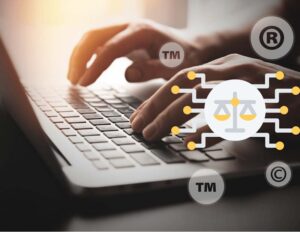What is the CompTIA Security+ Certification?
Security+ is a beginner level certification designed to give you a strong foundation in cybersecurity. The CompTIA Security+ Certification is globally recognized and certifies that you have the foundational skills necessary to pursue a career in cybersecurity. This certification has a strong emphasis on hands-on practical skills and their real-world applications.
Why should you consider getting a Security+ Certification?
Technology is constantly evolving – there’s never a dull moment in the world of Cybersecurity. Cybersecurity is a fast-growing field that is in high demand across all industries. It is a great field for those who enjoy problem solving and learning new things.
Security+ is a foundational certification that can help set you apart from other candidates for entry-level Cybersecurity positions. According to CompTIA, in 2017 the median salary for someone with a Security+ Certification was $81,100. (CompTIA)
Jobs in this field are categorized under Computer and Information Technology Occupations by the US Bureau of Labor Statistics. The number of jobs in this category is expected to grow 13% by 2030 adding approximately 667.600 new jobs. Bureau of Labor Statistics.
The areas expected to see the greatest increase in demand include cloud computing, collection and storage of big data and information security. A Security+ certification will strongly benefit you if you are interested in pursuing a career in any of these areas.
What jobs does the Security+ Certification prepare you for?
A Security+ certification will prepare you for a variety of careers in IT and Cybersecurity. Here’s a few jobs that may benefit from or require a Security+ certification:
- Systems Administrator
- Security Administrator
- Security Engineer
- Network/Cloud Engineer
- Junior Penetration Tester
- Information Security Analyst
- Cybersecurity Consultant
What content does the certification cover?
Security+ is a foundational certification it covers a variety of cybersecurity concepts. There is a strong emphasis on practical skills and real-world troubleshooting scenarios.
Key topics include:
- Attacks, Threats and Vulnerabilities
- Threat mitigation
- Internet-of-things (IoT) & Embedded Devices
- Social engineering
- Architecture and Design
- Enterprise Environments
- Cloud Computing
- Implementation
- Identity & Access Management
- Public Key Infrastructure (PKI)
- Cryptography Basics
- Wireless Security
- End-to-end Security
- Operations and Incident Response
- Basic Threat Detection
- Risk Mitigation Techniques
- Security Controls
- Basic Digital Forensics
- Governance, Risk and Compliance
- Organizational Risk Management
- Compliance to Regulations (PIC-DSS, SOX, HIPPA, NIST, FISMA, GDPR)




